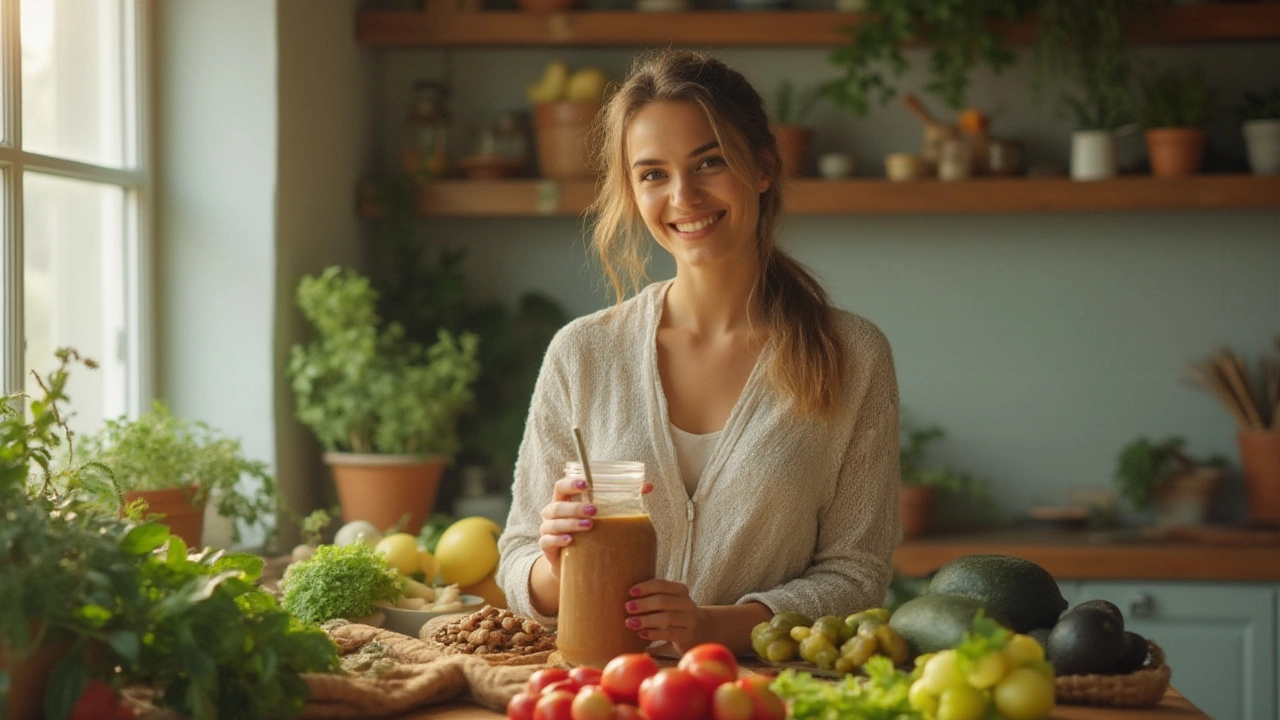Healthy Vegan Skin: Simple Tips & Recipes
If you think great skin only comes from fancy creams, think again. What you eat, drink, and how you treat your body matters more than any product. Going vegan gives you a clean slate full of plant power that can smooth, brighten, and protect your skin. Below are the basics you can start using today, no fancy jargon required.
Core Nutrients for Radiant Vegan Skin
First up, vitamins. Vitamin C from citrus, kiwi, and bell peppers fights free‑radical damage and helps your skin make collagen. Vitamin E, found in almonds, sunflower seeds, and avocado, locks in moisture and reduces inflammation. Omega‑3 fatty acids – the kind you get from ground flaxseed, chia, or hemp – keep cell membranes supple, which means fewer dry patches.
Don’t forget zinc and selenium. Both minerals support a clear complexion and are easy to find in pumpkin seeds, lentils, and Brazil nuts. Fiber is another secret weapon; a happy gut equals a happy face. High‑fiber foods like oatmeal, beans, and whole grains keep your digestion smooth, reducing the skin breakout triggers that many people blame on “bad skin” alone.
Easy Vegan Recipes That Boost Your Glow
Now that you know the nutrients, here’s how to get them on your plate. The Oatmeal Power Bowl (our post 52638) is a perfect breakfast. Blend rolled oats with a splash of oat milk, stir in ground flaxseed, top with berries and a dollop of Greek‑style coconut yogurt. The beta‑glucan in oats supports gut health, while the berries deliver antioxidants for that fresh‑faced look.
Looking for a filling lunch that won’t spike insulin? Check out the “Most Filling Meal” guide (post 51887). Combine a cup of quinoa, roasted chickpeas, mixed greens, and a drizzle of olive‑oil lemon dressing. Protein, fiber, and healthy fats keep you satisfied and help maintain steady blood sugar – a key factor in preventing acne flare‑ups.
If you’re curious about how alcohol fits into a vegan skin plan, read the gluten‑free alcohol article (post 51637). Some spirits hide hidden sugars that can inflame skin, so choosing clear, low‑sugar options is safer.
Lastly, don’t fall for the myth that vegetarians age faster (post 51095). A well‑planned vegan diet actually supplies more antioxidants than a typical meat‑heavy menu, which can slow skin aging when paired with sun protection.
Beyond food, keep a few lifestyle habits in mind: drink at least eight glasses of water a day, get 7‑9 hours of sleep, and limit exposure to processed sugars. When you pair these habits with the nutrient‑dense meals above, your skin will thank you with a natural, steady glow.
Ready to try? Pick one recipe, add a new skin‑friendly ingredient each week, and watch how quickly you see results. Vegan skin care isn’t a trend; it’s a simple, sustainable way to look and feel your best.
How to Fix Vegan Face: Restore Plump, Healthy Skin on a Plant-Based Diet
Struggling with 'vegan face'? Learn how to reclaim plump, healthy skin on a plant-based diet with practical tips, effective routines, and game-changing nutrition changes.
